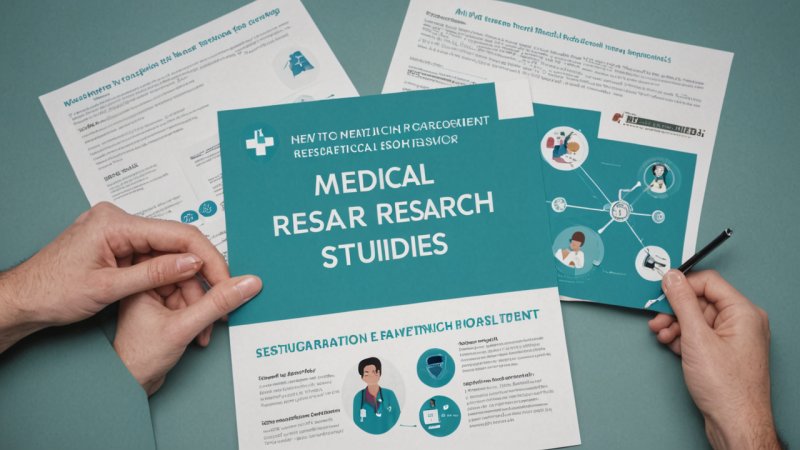Participating in medical research studies can be an enriching experience that contributes to the advancement of healthcare and medical knowledge. Many studies seek volunteers to test new treatments, medications, or interventions, and the participation process can vary widely depending on the type of study. Below are some frequently asked questions that can help guide you on how to get involved in medical research.
What types of medical research studies are there?
Medical research studies can be categorized into several types, including:
- Clinical Trials: Tests new drugs or treatments on volunteers to evaluate their effectiveness and safety.
- Observational Studies: Researchers observe participants without intervening, often to gather data on health outcomes.
- Survey Research: Uses questionnaires to gather information about health behaviors and attitudes.
- Longitudinal Studies: Follow participants over a period of time to observe changes and long-term effects.
How can I find medical research studies to participate in?
Finding medical research studies can be done through various channels:
- ClinicalTrials.gov: A comprehensive database of privately and publicly funded clinical studies conducted worldwide.
- Local Universities or Hospitals: Many academic institutions and medical centers conduct research and often recruit participants.
- Health Organizations: Nonprofit organizations and health advocacy groups often have information on ongoing studies.
- Social Media and Online Forums: Platforms like Facebook or Reddit can have groups focusing on research participation.
Who can participate in medical research studies?
Eligibility for participation varies by study, but generally, criteria may include:
- Age: Many studies have age requirements, often focusing on adults or specific age groups.
- Health Status: Some studies require participants to have specific health conditions, while others look for healthy volunteers.
- Location: Proximity to the study site can be a factor, especially for trials requiring regular visits.
- Consent: Participants must provide informed consent, meaning they understand the study's purpose and procedures.
What should I expect during the participation process?
The participation process generally includes the following steps:
- Screening: Initial assessments to determine if you meet the study criteria, which may include medical history and physical exams.
- Consent: You will be asked to read and sign an informed consent form, outlining the study's goals, risks, and benefits.
- Participation: Depending on the study, you may receive treatments, medications, or questionnaires to complete.
- Follow-Up: Some studies require follow-up visits or assessments to monitor your health and the effects of the treatment.
Are there risks involved in participating in medical research?
Yes, there can be risks associated with participating in medical research, such as:
- Side Effects: New treatments may cause unexpected side effects that are not yet fully understood.
- Time Commitment: Participation may require a significant time commitment, including visits and follow-up assessments.
- Confidentiality Concerns: Although researchers take precautions, there is always a risk of personal information being exposed.
Will I be compensated for my participation?
Compensation varies by study. Some studies offer:
- Financial Payments: Many studies provide compensation for time and travel expenses.
- Free Medical Care: Participants may receive free medical treatment or health assessments as part of the study.
- Gift Cards or Incentives: Some studies offer non-monetary incentives for participation.
How can I ensure my safety as a participant?
Your safety is a top priority in medical research. Here are some tips:
- Ask Questions: Don’t hesitate to ask the research team about the study, its risks, and your rights as a participant.
- Review the Consent Form: Ensure you thoroughly understand what you are agreeing to before signing.
- Report Concerns: If you experience any adverse effects or have concerns during the study, inform the research team immediately.
Participating in medical research studies can be a valuable way to contribute to healthcare advancements while potentially gaining new insights into your own health. By understanding the process and what to expect, you can make an informed decision about whether to take part. Always prioritize your safety and well-being, and remember that your participation could help pave the way for future medical breakthroughs.






